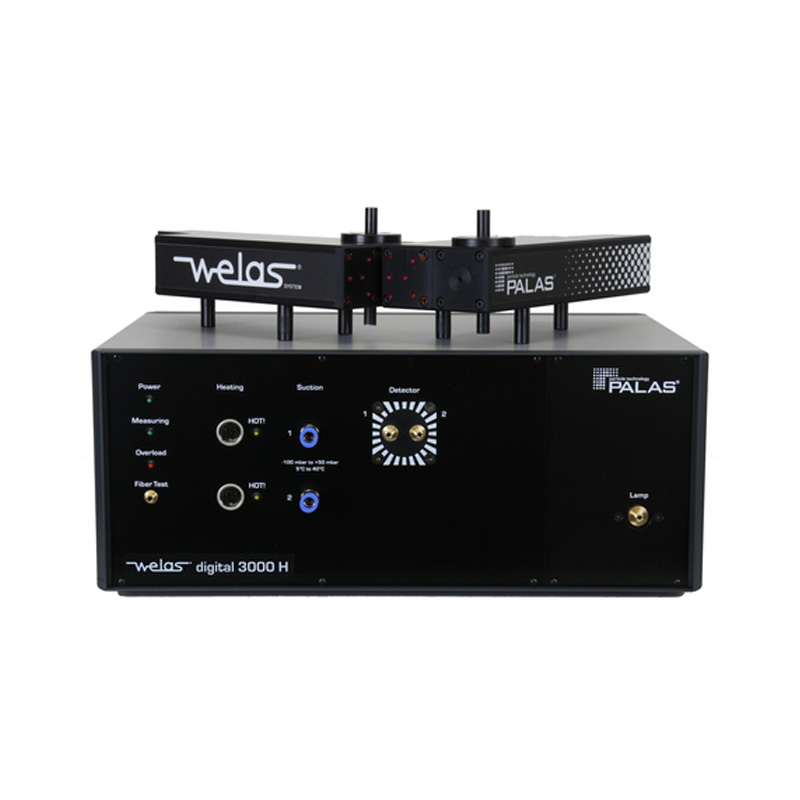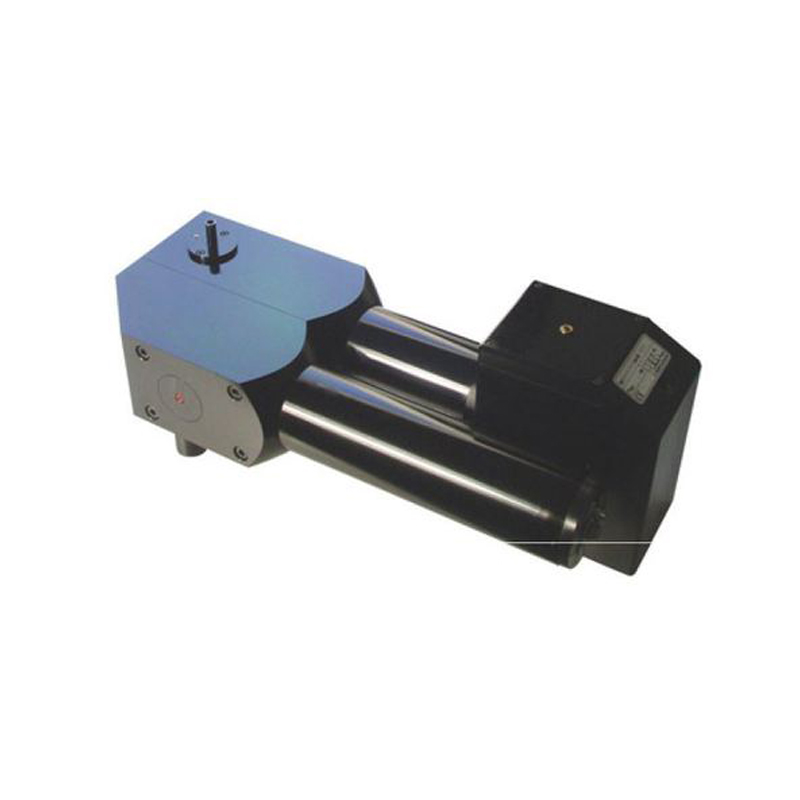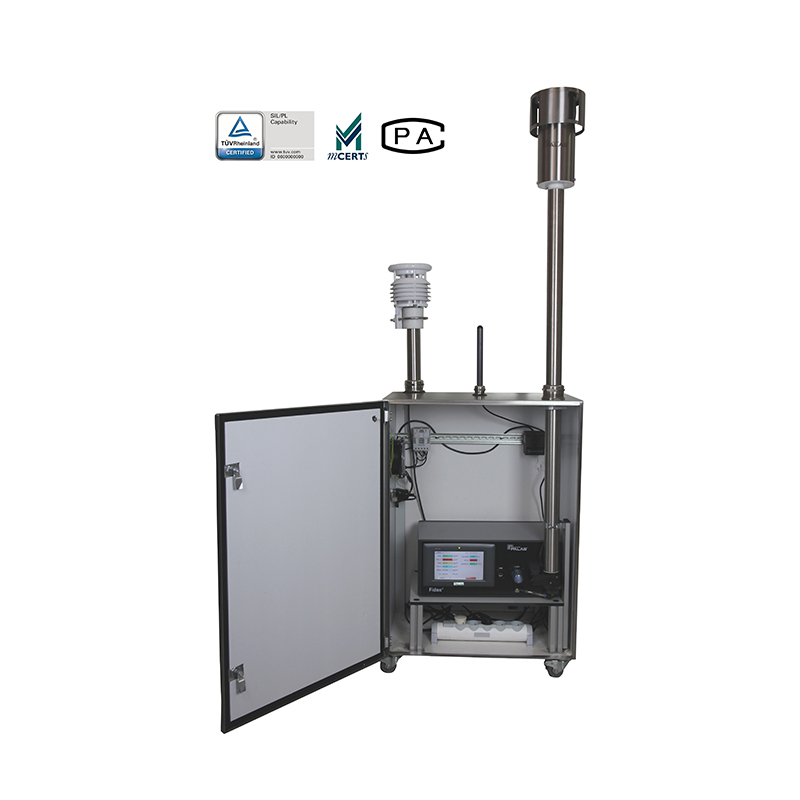Description
The welas® digital 3000 is a flexible, powerful and economical light-scattering spectrometer system with two aerosol sensors, which determines particle concentration and size precisely and reliably.
Unique are up to four measuring ranges in only one device:
• 0.2 µm – 10 µm
• 0.3 µm – 17 µm
• 0.6 µm – 40 µm
• 2 µm – 100 µm (additionally for sensors 2300 and 2500).
welas® digital 3000 is famous for up to 128 size channels per measuring range and a concentration range from < 1 particle/cm3 to 106 particles/cm3.
On the new welas® digital 3000, two welas® sensors are supplied with one light source and the scattered light pulses are detected by a photomultiplier. This enables a quasi-simultaneous particle measurement at two sampling locations that are up to 100 meters apart.
The quasi-simultaneous particle size and particle quantitative determination offers particular advantages for characterising separators with fluctuating raw gas concentrations.
With the welas® digital 3000 the user effectively has two scattered-light spectrometers in one device with the same device characteristics:
• Particle size resolution capability
• Particle size classification accuracy
• Counting efficiency
• Zero counting rate
The various welas® sensors are characterized by a particularly good conformity of counting efficiency and particle size resolution (see data sheet: welas® sensors).
Opto-mechanical switching
Using opto-mechanical switching, the two sensors that are connected can be easily controlled. The sensors are controlled automatically with the software.
The particular advantage over a manual measurement selector switch:
• Faster change of the measurement location
• No deposits in sampling lines
• Long service life; no wear of the seals due to dust particles
The welas® digital 3000 is characterized by its optical fibre technology. The welas® sensor is connected via a fiber optic cable with a length up to 30 m with the welas® digital control unit.
This leads to a minimization of particle losses in long sampling lines by simply installing the sensor directly at the sampling location.
Connection via fiber-optic cable allows the welas® 2000 and 2000 P series sensors to be easily connected to the control and evaluation unit and interchanged as required.
The welas® sensors are equipped with different sized measurement volumes. This allows adaptation of the measuring device to the particle concentration present in the application, such that a high counting rate can be achieved with a short measuring time.
The aerosol sensors allow reliable measurement in the concentration range from < 1 particle/cm3 up to 106 particles/cm3.
The welas® digital is based on scattered-light analysis on a single particle. With the new welas® digital, the special advantages of the well-known and internationally acclaimed welas® system are combined with new and fast digital individual signal processing and coincidence correction is enabled.
The high size classification accuracy and the high size resolution are guaranteed by the following special feature (see Graph 1):
• White light and 90° light-scattering detection
⇒ Unambiguous calibration curve
• Patented T-aperture
⇒ No border zone error
• New digital individual signal processing
⇒ Coincidence detection and correction of the individual signal making it possible to measure in higher concentrations
The welas® digital measurement technology
welas® digital offers a new, fast 20 MHz signal processing processor, which analyses the progression of each particle signal. This makes it possible to recognise coincidental events in light scattering measurement technology at the individual signal and correct them (according to Dr. Umhauer / Prof. Dr. Sachweh).
This way it is possible to increase the maximum concentration limit up to 106 particles/cm3 (welas® 2070 sensor).
Also in low concentrations < 1 particle/cm3 with the welas® 2500 sensor, this leads to a higher measuring accuracy.
High classification accuracy, high resolution capability and a high counting efficiency are the prerequisite for unambiguous particle measurement.

Fig. 1: Resolution capability and classification accuracy
The welas® digital is characterized by its very high counting efficiency starting from 0.2 µm!

Fig. 2: Example with sensor
The welas® PDControl digital software
The welas® digital is controlled via a laptop using the PDControl software. The software allows particle measurements and calibration of the measurement device.
In addition, the measurements can be analyzed and compared in detail with a temporal resolution down to 10 ms.
The welas® digital filter test software FTControl
The FTControl software is used to flexibly program defined switching times between the two sensors. The measurement data are saved to a file and can be individually evaluated and compared in terms of particle size and concentration, as well as the fractional separation efficiency.




